Vietnamese tycoon loses death row appeal over world's biggest bank fraud
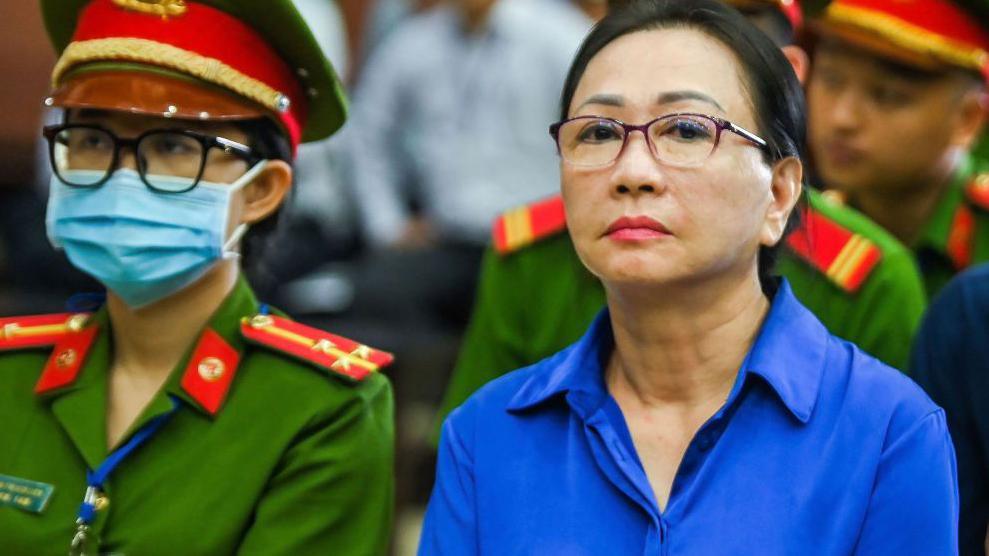
Truong My Lan, pictured in court on Tuesday, could still avoid execution
- Published
Vietnamese property tycoon Truong My Lan has lost her appeal against her death sentence for masterminding the world’s biggest bank fraud.
The 68-year-old is now in a race for her life because the law in Vietnam states that if she can pay back 75% of what she took, her sentence will be commuted to life imprisonment.
In April the trial court found that Truong My Lan had secretly controlled Saigon Commercial Bank, the country’s fifth biggest lender, and taken out loans and cash over more than 10 years through a web of shell companies, amounting to a total of $44bn (£34.5bn).
Of that prosecutors say $27bn was misappropriated, and $12bn was judged to have been embezzled, the most serious financial crime for which she was sentenced to death.
It was a rare and shocking verdict - she is one of very few women in Vietnam to be sentenced to death for a white collar crime.
On Tuesday, the court said there was no basis to reduce Truong My Lan's death sentence. However, she could still avoid execution if she returns $9bn, three-quarters of the $12bn she embezzled. It's not her final appeal and she can still petition the president for amnesty.
During her trial Truong My Lan was sometimes defiant, but in the recent hearings for her appeal against the sentence she was more contrite.
She said she was embarrassed to have been such a drain on the state, and that her only thought was to pay back what she had taken.
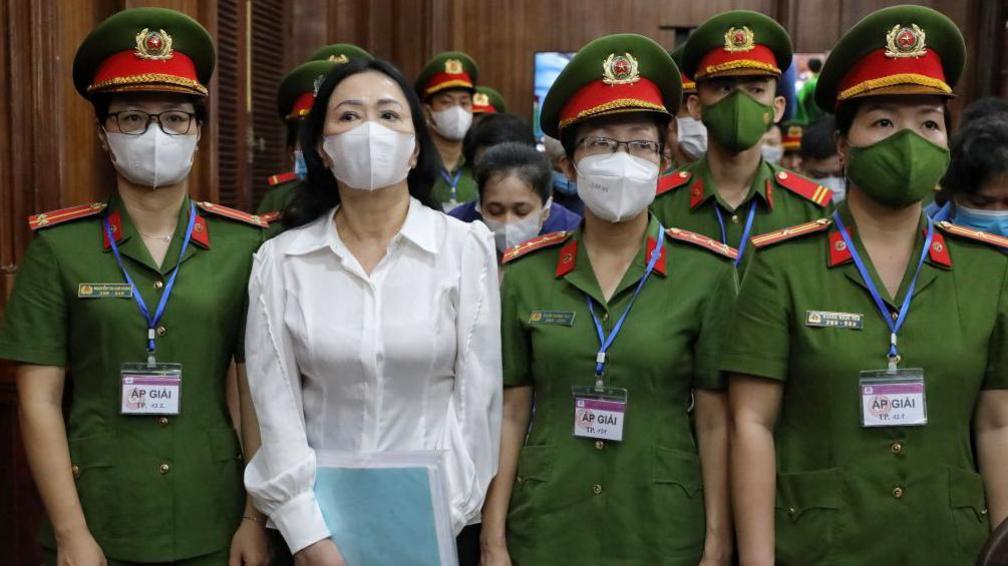
Truong My Lan was sentenced to death earlier this year
Born into a Sino-Vietnamese family in Ho Chi Minh City, Truong My Lan started as a market stall vendor, selling cosmetics with her mother. She began buying land and property after the Communist Party introduced economic reform in 1986. By the 1990s, she owned a large portfolio of hotels and restaurants.
When she was convicted and sentenced in April, she was the chairwoman of a prominent real estate firm, Van Thinh Phat Group. It was a dramatic moment in the "Blazing Furnaces" anti-corruption campaign led by then-Communist Party Secretary-General, Nguyen Phu Trong.
All of the remaining 85 defendants were convicted. Four were sentenced to life in jail, while the rest -including Truong My Lan's husband and niece - were given prison terms ranging from 20 years to three years suspended.
The State Bank of Vietnam is believed to have spent many billions of dollars recapitalising Saigon Commercial Bank to prevent a wider banking panic. The prosecutors argued that her crimes were "huge and without precedent" and did not justify leniency.
Truong My Lan’s lawyers said she was working as fast as she could to find the $9bn needed. But cashing in her assets has proven difficult.
Some are luxury properties in Ho Chi Minh City which could, in theory, be sold quite quickly. Others are in the form of shares or stakes in other businesses or property projects.
In all the state has identified more than a thousand different assets linked to the fraud. These have been frozen by the authorities for now. The BBC understands the tycoon has also reached out to friends to raise loans for her to help reach the target.
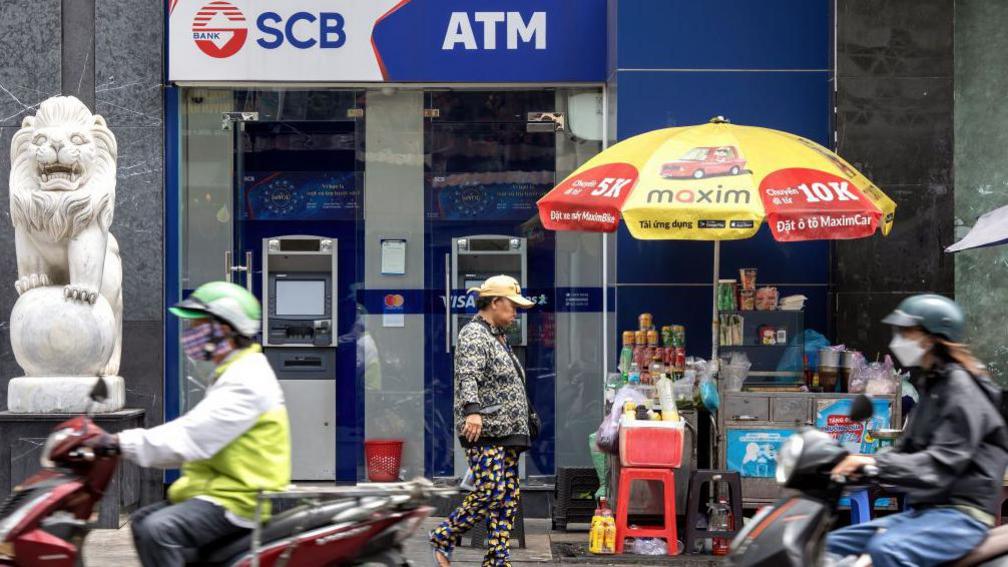
Truong My Lan defrauded Saigon Commercial Bank, one of Vietnam's biggest lenders
Her lawyers have argued for leniency from the judges on financial grounds. They said that while she is under sentence of death it would be hard for her to negotiate the best price for selling her assets and investments, and so harder for her to raise $9bn.
She could do much better if under a life sentence instead, they say.
“The total value of her holdings actually exceeds the required compensation amount,” lawyer Nguyen Huy Thiep told the BBC before her appeal was rejected.
“However, these require time and effort to sell, as many of the assets are real estate and take time to liquidate. Truong My Lan hopes the court can create the most favourable conditions for her to continue making compensation.”
Few had expected the judges to be moved by these arguments. She is now, in effect, in a race with the executioner to raise the funds she needs.
Vietnam treats the death penalty as a state secret. The government does not publish how many people are on death row, though human rights groups say there are more than 1,000 and that Vietnam is one of the world’s biggest executioners.
Typically there are long delays, often many years before sentences are carried out, although prisoners are given very little notice.
If Truong My Lan can recover the $9bn before that happens, her life will most likely be spared.
Related stories
- Published25 January 2024
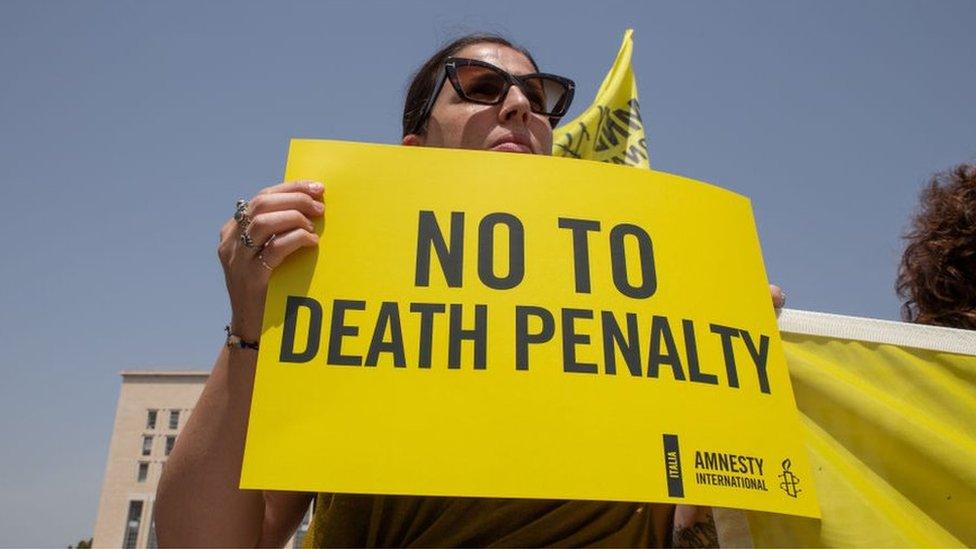
- Published3 September 2022
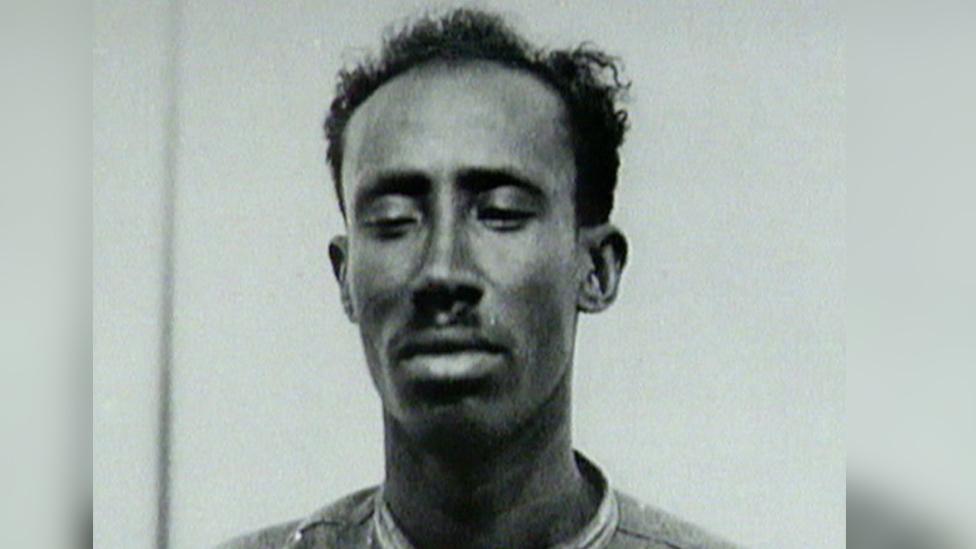
- Published28 October 2024
